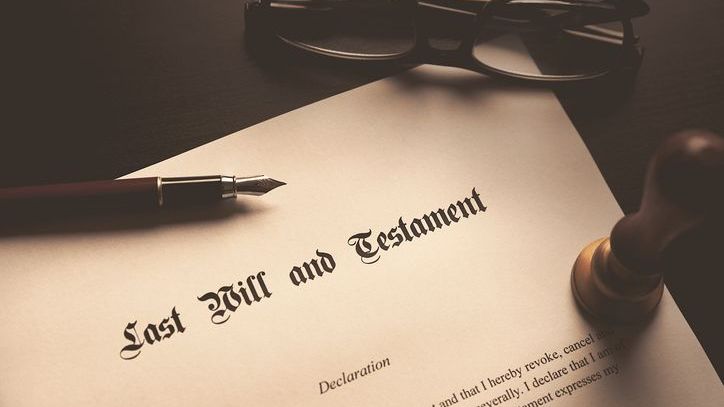Understanding how long you have to file probate after a death is a fundamental aspect of estate planning. Unfortunately, there’s no straight answer. The timeframe can vary significantly depending on the state laws, and can range from a few months to a few years. This is why filing probate promptly is essential if you want to avoid potential legal complications. When you adhere to the deadlines set by state and local laws you help facilitate a smooth transition for the estate that honors the decedent’s wishes. Knowing these timelines will also help you make informed decisions during a challenging time.
A financial advisor can potentially help you arrange your estate in a way so it can bypass probate. Connect with a fiduciary advisor today.
What Is Probate?
Probate is the court-administered process that supervises how a deceased person’s will is validated and their assets are distributed. If there is no will naming an executor, the process begins with the court appointing an administrator. This person is responsible for managing the deceased’s estate, which includes collecting assets, paying debts and taxes and distributing the remaining assets to beneficiaries.
The executor must inventory the deceased’s assets and submit this inventory to the probate court. Creditors are notified and given an opportunity to claim any debts owed by the estate. Once all debts and taxes are paid, the executor distributes the remaining assets according to the will or state law if no will exists.
Probate can be a lengthy process, often taking several months to over a year, depending on the complexity of the estate and any disputes that arise.
How Long Do You Have to File Probate After a Death?

The timeframe for initiating this legal process can vary significantly depending on the state in which the deceased resided. Generally, probate must be filed within a specific period after the death, typically ranging from 30 days to a year.
Each state has its own set of laws governing the probate process. For example, probate in California requires a filing within 30 days of discovering the will, while in Texas, executors have up to four years to file.
- California: Probate should be filed within 30 days of the person’s death.
- Texas: Executors have up to four years from the date of death to file probate.
- New York: Probate should be filed within six months, although it is advisable to file as soon as possible.
- Florida: Executors are required to file probate within 10 days of receiving the death certificate.
These varying deadlines are important to adhere to, as missing them can complicate or even prevent the administration of the estate. If you’re designated as an executor of a will, it’s important to verify when the will must be delivered to the court following the decedent’s death. You can do this by contacting the clerk’s office of the county in which the decedent lived.
Failure to file probate within the required timeframe can lead to significant legal and financial consequences. In some states, missing the deadline may result in penalties, additional legal hurdles, or the invalidation of the will.
How to File Probate
If you’re an executor of an estate, you’ll first need to locate the decedent’s will and secure their property. From there, follow these six general steps to start and complete the probate process:
1. File the Petition
The executor or administrator files a petition with the probate court in the county where the deceased lived. This petition typically includes the death certificate and the original will, if available. The court then schedules a hearing to validate the will and officially appoint the executor or administrator.
2. Notify Heirs and Creditors
After the petition is filed, the executor must notify all heirs and beneficiaries named in the will, as well as any potential creditors. This is usually done through a combination of mail and public notices. Creditors are given a specific period to make claims against the estate.
3. Inventory and Appraise Assets
The executor is responsible for taking inventory of the deceased’s assets, including real estate, personal property, bank accounts, and investment portfolios. These assets are then appraised to determine their fair market value for tax purposes and equitable distribution.
4. Pay Debts and Taxes
Once the assets are inventoried and appraised, the executor pays any outstanding debts and taxes from the estate’s funds. This may include funeral expenses, medical bills, and state or federal taxes. This is a key part of the probate process before any distributions are made.
5. Distribute the Estate
After all debts and taxes are paid, the leftover assets are distributed to the beneficiaries according to the will or state law if there is no will. The executor must provide a detailed accounting to the court, showing all transactions and distributions. Once the court approves this accounting, the probate process is complete.
6. Close the Estate
The final step in the probate process is closing the estate. The executor must prepare a final accounting of all transactions, including payments made and assets distributed. This accounting is submitted to the court for approval. Once the court approves, the estate is officially closed, and the executor’s duties are complete.
When Probate May Not Be Required
Not every asset in an estate must pass through probate. Some assets are considered “non-probate property” because they transfer automatically to another person upon death. Common examples include jointly owned property with rights of survivorship, life insurance policies with named beneficiaries, retirement accounts like IRAs or 401(k)s with designated heirs, and bank or investment accounts labeled as payable-on-death (POD) or transfer-on-death (TOD). These assets generally avoid court involvement and are distributed directly to the listed beneficiary or co-owner once a death certificate is provided.
Assets held in a living trust also avoid probate. A revocable living trust allows a person to transfer ownership of assets to the trust during their lifetime. Upon death, the trustee distributes the assets according to the trust’s terms without court supervision. This can reduce administrative delays and legal costs, especially for larger or more complex estates. However, only assets formally titled in the name of the trust are exempt from probate, so proper funding of the trust is essential.
Some states also offer simplified probate procedures for small estates under a certain value. These processes may involve an affidavit or summary administration that speeds up asset transfers without going through full probate. The definition of a small estate varies by state and may depend on factors such as total asset value and types of property owned. Executors and family members should review their state’s small estate thresholds to determine whether a simplified approach may be available.
Bottom Line

Knowing the specific deadlines and requirements for your state is key to managing an estate effectively. While some states require wills to be probated within a matter of days after a person’s death, others have deadlines that don’t elapse until years later. How long you have to file probate after a death depends entirely upon the state laws where the decedent passed away.
Probate Tips
- Depending on the size and needs of an estate, it may be helpful to hire a probate lawyer to steer the estate through this legal process. Probate attorneys will not only file the necessary paperwork with the court, but they can also help obtain property appraisals, manage life insurance proceeds or represent the estate in other matters.
- A financial advisor with estate planning expertise can also be a valuable resource while you’re arranging your estate and deciding what will happen to your assets. Finding a financial advisor doesn’t have to be hard. SmartAsset’s free tool matches you with vetted financial advisors who serve your area, and you can have a free introductory call with your advisor matches to decide which one you feel is right for you. If you’re ready to find an advisor who can help you achieve your financial goals, get started now.
Photo credit: ©iStock.com/Thapana Onphalai, ©iStock.com/SDI Productions, ©iStock.com/simpson33
